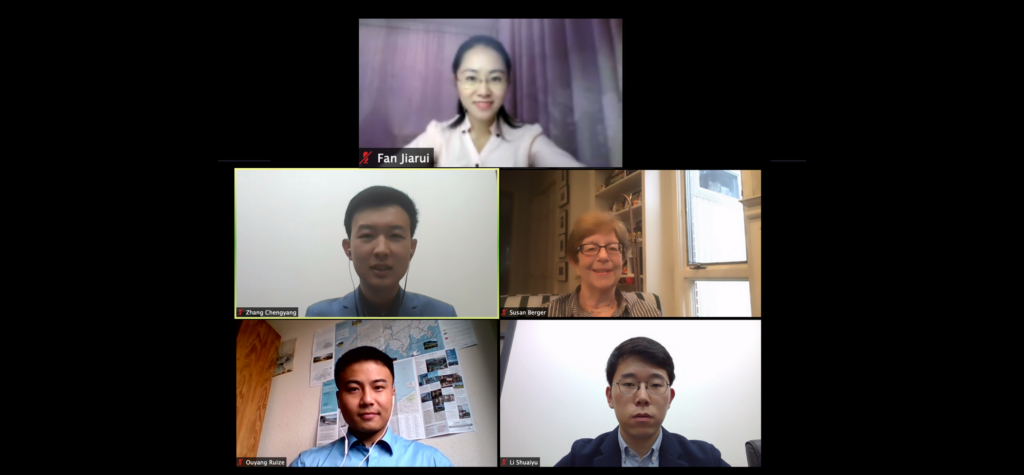
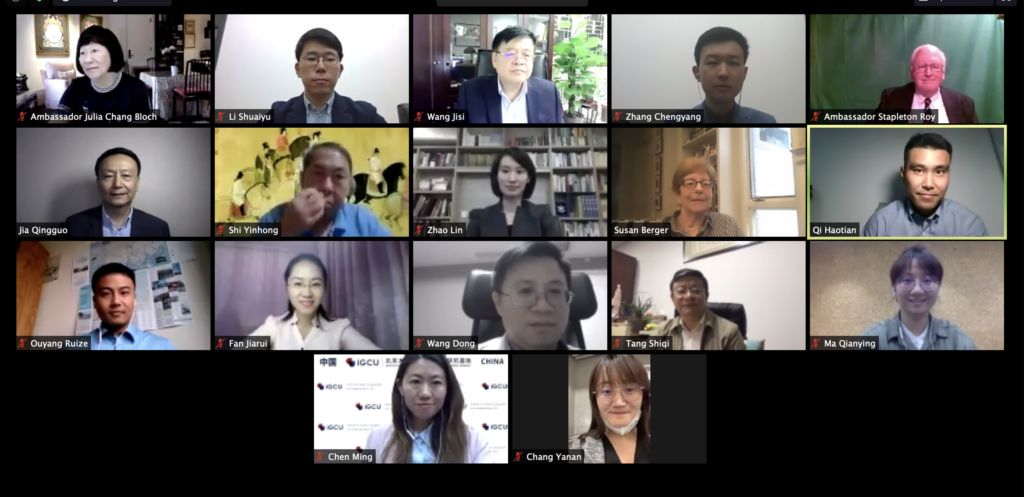
USCET and Peking University School of International Studies hosted a virtual awards ceremony for the first cohort of fellows receiving the “Sandy” Berger Memorial Fellowship.
The Sandy Berger Memorial Fellowship was founded to celebrate the life and legacy of the late Honorable “Sandy” Berger, former National Security Advisor to President Bill Clinton, who demonstrated a strong commitment to balancing competition with collaboration between the United States and China, even when the obstacles seemed insurmountable. As Madeline Albright remarked after Sandy’s passing, “Our country is stronger because of Sandy’s deep and abiding commitment to public service, and there are countless people whose lives he changed for the better. I am certainly one of them.” In Sandy’s spirit, the Awards seek to support scholarship on US-China relations and to strengthening the invaluable people-to-people ties between the U.S. and China.
Prof. Jia Qingguo, Professor at the School of International Studies and Director of the Institute of Global Cooperation and Understanding at Peking University (PKU), opened the ceremony by reading remarks from Prof. Wang Bo, the Vice President of Peking University. In his speech, Prof. Wang reflected upon Sandy’s contributions to PKU’s foreign exchange program and how the Fellowship’s mission of strengthening person-to-person bonds is especially important in today’s political climate. He has high hopes that the PKU scholars will continue to serve as representatives of the new generation of global leaders and “think far-sided, shoulder their responsibilities and missions, learn from the history of the relationship between the two countries, take over the torch of promoting U.S.-China friendship from their predecessors, and work together to open up even better prospects for the future of the relationship between our two countries”.
Mrs. Susan Berger, the wife of the late Sandy Berger, gave a moving speech highlighting Sandy’s lifelong friendships in China and passion to make the world a better place through diplomacy. Mrs. Berger emphasized her excitement and gratefulness for the Fellows and their research, “Sandy would be delighted to hear about the work you four scholars will be pursuing as Berger Fellows and throughout your work he would be encouraged to know that there is a new generation of stewards dedicated to promoting our bilateral relationship. Thank you for carrying the torch of his efforts and honoring his memory.”
Amb. Julia Bloch, Founder and President of U.S.-China Education Trust spoke on behalf of USCET, offering her congratulations to the Berger Fellows, recounting her own experience at PKU, the founding USCET, and her insights on the path forward for diplomacy between our two nations. She described how COVID-19 and the following policy responses have brought us to the “blackest period in U.S.-China relations”. Our hope for the future, she argued, lies in the next generation. “Sandy Berger Fellows, you are our hope. You are a point of light in these dark times… it is your generation, both in China and the US, who needs to pick up the mantle to regenerate this all-important relationship – to rebuild mutual trust in the study that we share, the technologies that we create, and the business that we do. World peace and prosperity will depend on it.”
Prof. Tang Shiqi, Dean of the School of International Studies at Peking University, also stressed the importance of person-to-person exchange, especially in the post-COVID political climate. He shared thoughts on how to be a good diplomat and effective researcher, stating that “it is only on the basis of mutual understanding that we can discover where our real differences lie and find ways to resolve or manage them” He added how this especially relates to his Fellows at PKU, “I think the Berger Fellowship and the cause of U.S.-China people-to-people exchange are to pursue a high level of understanding, trust, and friendship between China and the U.S. I fully agree with Ambassador Julia Chang Bloch that educational and cultural exchanges… are the last and most important pillar and cornerstone of the relationship between the two countries and that when other aspects are hindered, people-to-people exchanges are even more important and must be continued.”
Ms. Zhao Lin, President of Peking University Education Foundation (USA) and Mr. Zhu Yibo, Deputy Secretary of the Party Committee of the School of International Studies at Peking University, further echoed these sentiments, supporting the value of education exchange during a tenuous political climate, as Ms. Zhao emphasized, “I have no illusions that the road ahead of us will be easy, either for short end or the long haul. But today we are working together and I believe that we will meet the challenges with both humility and courage.”
Presenting on the “Formation and Practice of Navigation Rules of the Maritime Passage”, Ms. Fan Jiarui, a doctoral student, was the first to speak. Ms. Fan focused her research on the Malacca Strait and how international traffic helped form stable regional governance there after World War II. She argued that the area has constructed a “Limited-Open Cooperation Mode”, consisting of three levels: Sovereignty Level (Three states), Mechanism Level (ASEAN) and Order Level (Outside Countries). Moreover, her model takes into account additional factors that could influence this system, including the breath of industrialization and depth of management control in the region. She further described her research plan and how her fieldwork can help strengthen Sino-American communication with Southeast Asian countries and provide additional framework for continued economic prosperity in the region.
Prof. Wang Jisi, Professor at the School of International Studies and President of the Institute of International and Strategic Studies at Peking University, provided commentary on Ms. Fan’s presentation and shared his personal experience with Sandy Berger, highlighting his admiration of Sandy’s great aptitude for U.S.-China relations and history. He insisted that especially in the face of tenuous political outcomes, we must “work harder together to maintain the bilateral education exchanges and cooperation.” He continued, “our hopes lie in the younger generations, in the students that are attending this ceremony.”
Mr. Li Shuaiyu, also a doctoral student, presented on “The United States and East Asia in Globalization: Commitment to the Open Economy and Its Challenges”. In his research, Mr. Li focused on the new era of globalization, as well as the unique challenges it brings for East Asia and the U.S. He speculated on the political economy of the U.S. and the changes it has faced at the hands of industrial competition and party realignment after the 1980s. To support his project, he presented his sources and provided reviews on literature from topics related to the “Choice of the Open Economy and Their Limitations”, structuring his research around competition policy and the social cleavages created within the U.S.’s political party system. This research, Mr. Li argues, can help better understand U.S. economics decisions and how they impact East Asia.
Ms. Tara Sonenshine, Distinguished Fellow at the George Washington University (GWU), provided commentary on Mr. Li’s work, emphasizing the importance of words in today’s world and how their usage can convey deep meaning and change research outcomes. She encouraged a conversation between herself and Mr. Li, stating that as a Career Advisor at GWU, she always strives to understand the goals and aspirations of her students, as she clarifies, “the person behind the paper”, to further assist in strengthening students’ research. Additionally, she highlighted her own experience as Under Secretary of State for Public Diplomacy and Public Affairs, encouraging Mr. Li to consider the profound impact of Japan’s change in leadership and the COVID-19 pandemic have had on global politics and foreign relations.
Ouyang Ruize, a postgraduate student, presented on “Biosafety Issues in China-U.S. Relations”. Mr. Ouyang defined biosafety is a “secure status for all living things on earth,” a concept that applies to many contemporary issues from COVID-19 to gene editing. Especially relevant during the current pandemic, Mr. Ouyang argued that the importance of this issue has become particularly critical in the 21st century, with increasing transportation speeds and vast interconnectivity. Mr. Ouyang emphasized how the U.S. and China have tremendous benefits for collaboration, including medical research, ecological protection, security, disarmament, and public health among others. These benefits serve as excellent reasons why, Mr. Ouyang argued, the U.S. and China should take global leadership roles in governance on biosafety.
Prof. Shi Yinhong, Distinguished Professor at the School of International Relations at Renmin University, provided commentary on Mr. Ouyang’s research, noting the importance of his work in 2020, as the world continues to combat COVID-19. He encouraged Mr. Ouyang to consider “what is” versus “what ought to be”, highlighting the current year as the darkest year in China-U.S. relations since the 1970s, with both sides wielding false allegations and pushing away from the numerous benefits of mutual cooperation. He argued that a realistic approach must be taken in both negotiations and policy, considering the administrations and politics of both sides. He emphasized that despite the dark forecast, he is hopeful that projects like Mr. Ouyang’s and the other Fellows will continue to illuminate the path forward for both sides and lead to better future outcomes.
Mr. Zhang Chengyang, an undergraduate student, shared his research on “Understanding the ‘Self-Assertion’ by Secondary Powers: Structural Rigidity and Internal Mobilization”. In his presentation, Mr. Zhang shared why he believes secondary powers choose “self-assertion” and how this relates to the U.S.-China global power balance. He argued that in the past, the self-assertion of control was often not pursued by secondary powers, as their political strength and influence were too weak. This phenomenon, he continued, was largely due to the structural rigidity of the bipolar system and demand for internal mobilization. Mr. Zhang concludes that a state will resort to self-assertive behavior only when the structural rigidity of the given bipolar system is low and the state has considerable demand for internal mobilization. Moreover, he argues that the policy implications of such research include predicting the European Union’s campaign for “strategic autonomy” and understanding Russian foreign policy as influenced by domestic dynamics.
Amb. Stapleton Roy, Founding Director Emeritus of the Wilson Center’s Kissinger Institute on China, provided feedback for Mr. Zhang’s presentation, maintaining that this type of research is especially relevant today, given the increasing bipolarity between the United States and China. Amb. Roy remarked that given his background as a public servant and diplomat, his work focused on leadership versus structural factors. Leadership, he argues, is especially important when considering decisions through a global scope. Contemporarily, he emphasized this concept as helping to explain the U.S.’s most recent foreign policy decisions. He referenced an essay authored by Dr. Henry Kissinger, Former United States Secretary of State, that examined military bipolarity in a multipolar world, a topic he argued was especially relevant today. He concluded that secondary powers do not want military bipolarity. This desire is seen when rigidity in the bipolar system increases and as a result, secondary powers increase their own self-assertion. This finding, he argued, was reached in both Dr. Kissinger’s and Mr. Zhang’s essays.
Prof. Jia Qingguo concluded the ceremony by contextualizing the Berger Awards in the larger political movement away from bilateral cooperation between the U.S. and China. “This event takes place at a time when our two countries are in difficult times. Recently, we hear all kinds of accusations and allegations, we are told that our two countries are enemies. We are told that the other country has been writing us off… The fact is the allegations and allegations are false. China and the U.S. are not enemies… Only through constant contact between our peoples can we appreciate each other’s concerns and aspirations objectively and formulate appropriate policies on that basis. Only through constant contact can we find ways to live peacefully and prosper.”
We at USCET are honored to provide a platform to celebrate the vast academic achievements of Peking University’s brightest minds and show that despite challenging political climates, people-to-people exchange and connections will always triumph.
2020 Berger Fellows Biographies
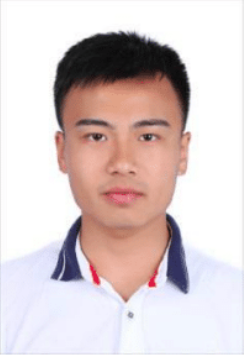
Ouyang Ruize
Mr. Ruize Ouyang (欧阳瑞泽) is a postgraduate student at the School of International Studies at Peking University (PKU) studying International Organizations and International Public Policy. Prior to his studies at PKU, Mr. Ouyang completed his undergraduate studies at Nanjing University’s School of Government Management. During his undergraduate career, Mr. Ouyang studied abroad at the University of Wisconsin-Madison.
With interests in the study of global environmental policy, U.S.-China relations, and international organizations, Mr. Ouyang is enthusiastic to further pursue academic research in environmental politics and sustainable development in the future.
Outside of the classroom, Mr. Ouyang is an active member of his university community. At Nanjing University, he served as President of the Student Union and pursued many extra-curricular activities including chorus, football, and participated in various academic forums. During his postgraduate study at PKU, he has worked as a Student Assistant in the University’s International Cooperation Department.
Mr. Ouyang plans to use his fellowship funds to research topics including “comparison of polar policies between China and the U.S.”, “impact of domestic factors (Congress, stakeholders, etc.) on the green development policy of the United States”, “history, orientation, and prospect of the global environmental governance cooperation between China and the U.S.”, among other topics.
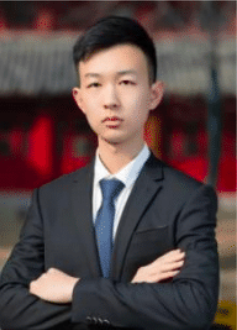
Zhang Chengyang
Mr. Chengyang Zhang (张诚杨) is an undergraduate student at the School of International Studies at Peking University (PKU) studying International Politics. He has participated in programs at leading global universities, such as the Paris Institute of Political Studies and the University of Tokyo. He is also a part of the Talent Cultivation Program of the Social Science Foundation and attended King’s College of London’s Department of War Studies’ summer school program.
Outside of his undergraduate studies, Mr. Zhang has received many academic accolades and participated in many extra-curricular activities. He has been awarded the National Merit Scholarship, was chosen as a School-level Merit Student, served as the Committee Chair for the Model United Nations, and won a prize in the Sino-Hellenic “Belt and Road Innovation and Startups Summit held in Greece.
Mr. Zhang plans to use his fellowship to pursue his many research interests including U.S. politics, security, and trade in U.S.- China relations. Currently, he is researching topics of dispute on U.S.-China economic models and U.S.-China trade frictions. In the future, Mr. Zhang strives to conduct further research in these areas and contribute to scientific data collection in American universities.
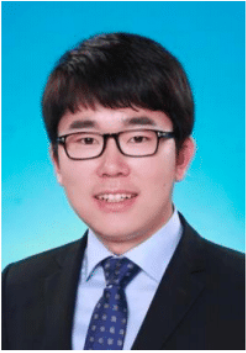
Li Shuaiyu
Mr. Shuaiyu Li (李帅宇) is a Ph.D. student studying International Politics at the School of International Studies at Peking University (PKU). During his undergraduate study, Mr. Li majored in International Politics and Finance at Shanghai University of International Business and Economics, receiving a Bachelor of Law and Bachelor of Economics. Following his undergraduate studies, Mr. Li earned his Master’s degree in International Political Economics at Peking University. In addition to his academic achievements, Mr. Li is highly proficient in English, Korean, and Japanese.
Outside of his studies, Mr. Li has pursued many opportunities to enhance his knowledge of international relations. Mr. Li was awarded a scholarship for the Leadership Student Exchange Program, through the Korea Foundation for Advanced Studies, and the JASSO scholarship from Japan’s Ministry of Education, Science, and Culture
Mr. Li’s research focuses include U.S.-East Asia relations after World War II from the perspective of reconciliation and comparative studies on the U.S. and East Asia against the background of economic globalization. He hopes to apply the fellowship funds to further his ongoing research on U.S. politics and economy.
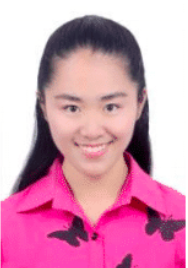
Fan Jiarui
Ms. Jiarui Fan (范佳睿) is a Ph.D. student studying International Politics at the School of International Studies at Peking University (PKU). Prior to her doctoral studies, she earned a Master’s degree in International Politics at PKU and Bachelor’s degree in International Politics at Qingdao University.
As an accomplished scholar, Ms. Fan has won 15 national, provincial, and university-level honorary titles. In addition to the Berger Fellowship, she has been awarded many scholarships including the President’s Scholarship and National Scholarship. Furthermore, Ms. Fan is an accomplished researcher, having authored over five articles including the Establishment of China-ASEAN Community of Shared Future, published in the Journal of Contemporary Asia-Pacific Studies.
Ms. Fan has a strong interest in global and regional oceanic governance, international shipping safety, maritime strategic channels, and studies on Southeast Asia. She plans to use the fellowship funds to pursue field research in her target countries (the United States and Singapore) and surrounding areas. Additionally, she plans to conduct further research at renowned universities that have made great achievements in the fields of international relations, international law, and international shipping logistics in order to compare different models of international and regional shipping safety governance. She hopes that by conducting this research at a variety of universities, she can better understand what motivates differences between the U.S., China, the Southeast Asian countries in these topic areas.
